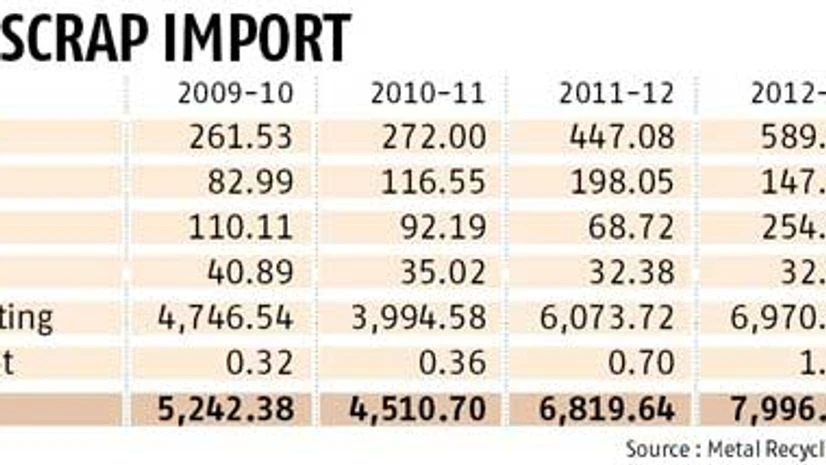With Transport Minister Nitin Gadkari proposing to garner Rs 100,000 crore for the development of highways in two years, steel mills are expecting a revival in demand. The scrap import is likely to pick up as the country is not producing enough ore to meet the demand.
The steel sector is demanding easing of duty on scrap import.
Import had fallen last year. Fears of ore prices shooting up due to rising steel demand may not hold true as sources said rising scrap import will help check ore prices. The latter have declined by 28 per cent this year to trade at $96.5 a tonne for delivery in China.
A slowdown in infrastructure investment in two-three years hit the sector hard. The steel demand in India grew 0.6 per cent in 2013-14 despite an average gross domestic product (GDP) growth of five per cent. The demand grows in 1.3 multiple of GDP. By that formula, the demand should have risen by 6.5 per cent.
In a recent statement, however, Gadkari and finance minister Arun Jaitley had hinted at measures to bring the manufacturing sector on the fast track.
Given ore mining continues to face hurdles, scrap is the only substitute, which India largely imports.
"In India, mills' excitement of owning raw material has come down. Rising import of scrap would keep ore prices under check," said T V Narendran, managing director, Tata Steel, in a recent interview with Business Standard.
India imported 4.6 million tonnes of scrap from China, Taiwan and Korea in 2013-14 compared to eight million tonnes the previous year. Despite a ban on ore mining, import of scrap plunged 42.5 per cent due to an overall slowdown in steel demand and, thereby, production in India. China has increased steel production capacity to 800 million tonnes adding 50-100 million tonnes annually for five-six years.
Data compiled by the Joint Plant Committee (JPC) showed India's finished steel consumption grew by 0.6 per cent to 74 million tonnes in 2013-14. India's iron ore production is estimated at 136.4 million tonnes in 2013-14 compared to 135.8 million tonnes in 2012-13.
"The slower-than-expected growth in steel demand can be attributed to lower demand from consumer sectors. But the future growth would depend on government measures in the coming Budget. With lots of free trade agreements signed with countries, scrap is imported at two per cent duty which needs to be increased at least to 10 per cent to bring the steel sector on track," said Neeraj Singhal, managing director, Bhushan Steel, one of the largest secondary steel manufacturers in India.
"Once investment in infrastructure projects starts coming, demand of raw material will also increase proportionately," said Amitabh Mudgal, president (marketing and corporate affairs), Monnet Ispat.
Iron ore production in India is likely to grow 14 per cent to 155 million tonnes in 2014-15.


)
